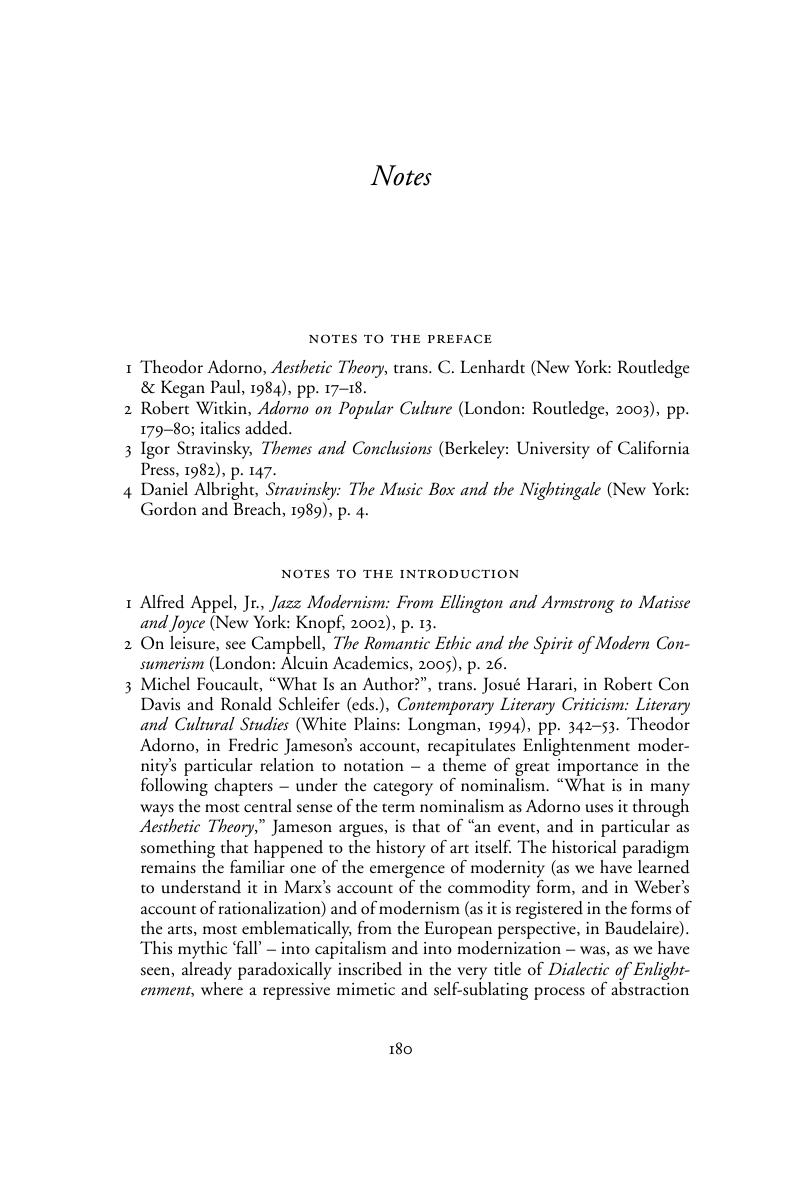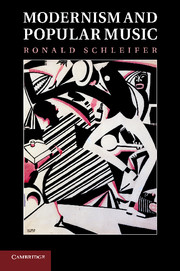Book contents
- Frontmatter
- Contents
- List of Figures
- Preface
- Acknowledgments
- Introduction: popular music and the experience of modernism
- PART I MUSICAL MODERNISM: POPULAR MUSIC IN THE TIME OF JAZZ
- PART II GERSHWIN, PORTER, WALLER, AND HOLIDAY
- Conclusion: popular music and the revolution of the word
- Notes
- Bibliography
- Index
- References
Notes
Published online by Cambridge University Press: 05 July 2011
- Frontmatter
- Contents
- List of Figures
- Preface
- Acknowledgments
- Introduction: popular music and the experience of modernism
- PART I MUSICAL MODERNISM: POPULAR MUSIC IN THE TIME OF JAZZ
- PART II GERSHWIN, PORTER, WALLER, AND HOLIDAY
- Conclusion: popular music and the revolution of the word
- Notes
- Bibliography
- Index
- References
Summary

- Type
- Chapter
- Information
- Modernism and Popular Music , pp. 180 - 215Publisher: Cambridge University PressPrint publication year: 2011



